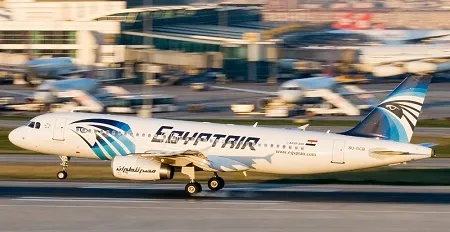
Egyptair black box recovered
Jun 15, 2016

EgyptAir has confirmed the recovery of the black box from the recently crashed aircraft in the Mediterranean Sea. The black box, which includes both the flight data recorder and the cockpit voice recorder, is crucial for understanding the circumstances surrounding the tragic incident. Recovery teams worked diligently to locate and retrieve the device from the depths of the ocean, where it had been submerged since the crash. The analysis of the black box will provide valuable insights into the final moments of the flight, aiding investigators in determining the cause of the accident and improving aviation safety measures moving forward.
Overview of the EgyptAir Black Box Recovery
The recent recovery of the EgyptAir black box has garnered significant attention from aviation experts and the public alike. This event is crucial for understanding the circumstances surrounding the tragic incident. The black box, which includes the cockpit voice recorder (CVR) and flight data recorder (FDR), is essential for investigators to analyze the flight's last moments.
Importance of the Black Box
The black box plays a pivotal role in aviation safety, as it stores vital information that can help determine the cause of an accident. The data retrieved from the black box can provide insights into pilot actions, mechanical issues, and environmental factors that may have contributed to the incident. Understanding these elements is fundamental for improving safety measures in the aviation industry.
Key Features of the Black Box
Here are some of the key features of the black box:
| Feature | Description |
|---|---|
| Durability | Designed to withstand extreme conditions, including high impact and deep-sea pressures. |
| Data Storage | Can record hours of flight data, including altitude, speed, and trajectory. |
| Recording Time | The CVR typically records the last two hours of cockpit audio. |
| Location Beacon | Equipped with underwater locator beacons to aid in recovery efforts. |
Challenges in Recovery Operations
The recovery of black boxes is often fraught with challenges. The location of the wreckage, ocean currents, and depth of the water can significantly affect the recovery process. In the case of EgyptAir, teams faced numerous obstacles, which delayed the retrieval of the black box.
Analysis of the Data
Once the black box is recovered, the data it contains will undergo extensive analysis. Investigators will scrutinize the flight data and cockpit conversations to piece together the events leading up to the incident. This analysis is crucial for identifying any systemic issues within the airline or operational procedures that could have contributed to the tragedy.
Impact on Aviation Safety
The findings from the EgyptAir black box are expected to have far-reaching implications for aviation safety. They may lead to recommendations for improved training for pilots, enhanced maintenance procedures, or even revisions to air traffic control protocols. The ultimate goal is to prevent similar accidents in the future and ensure that air travel remains one of the safest modes of transportation.
Conclusion: The Future of Aviation Investigations
The recovery of the EgyptAir black box is a significant step in understanding the factors that led to the incident. As technology advances, the methods of analyzing black box data will continue to evolve, providing even deeper insights into the complexities of aviation safety. Ensuring that lessons are learned from such tragedies is vital for the ongoing improvement of airline operations and passenger safety.
FAQs About Black Box Recovery
Here are some frequently asked questions regarding the recovery and analysis of black boxes:
| Question | Answer |
|---|---|
| How long does it take to analyze black box data? | The analysis can take weeks to months, depending on the complexity of the data and the incident. |
| What happens if the black box is damaged? | Even if damaged, data recovery techniques can often retrieve critical information. |
| Are black boxes always found? | While recovery is not guaranteed, modern technology has improved the chances of locating black boxes. |
Final Thoughts
The recovery of the EgyptAir black box is not just a procedural step; it represents a commitment to understanding and improving aviation safety. As the investigation unfolds, the aviation community and the public will be eager to learn what insights can be derived from the data, ultimately aiming to enhance safety protocols and prevent future tragedies. By focusing on the lessons learned, the industry can strive for continuous improvement in safety and operational effectiveness.
Related Articles

Explore Thailand: The Best Islands to Visit for Paradise, Adventure, and Relaxation

The Ultimate Guide to the Best Islands in Thailand for Your Next Getaway

Do babies need passports? How to get a passport for a newborn

How to get a U.S. passport fast: here’s how to expedite the process

What is Mobile Passport Control: 5 reasons why you should use it

SENTRI vs. Global Entry: A detailed guide

Do you need a passport to go to the Bahamas? Let’s find out

Do you need a passport to go to Mexico? A detailed guide

Do you need a passport to go to Canada? We got the answer

Do You Need a Passport for a Cruise: An Essential Travel Guide

Booster Seat Requirements: All the Rules to Follow in Your Rental Car

What Are the World’s Most Powerful Passports, and How Does Yours Rank?

How to Take a Passport Photo at Home: A Helpful Guide

You've got to have heart! Southwest's new livery

Your opinion: Should water be free on low cost carriers?

Young women bolder than guys as solo travellers
